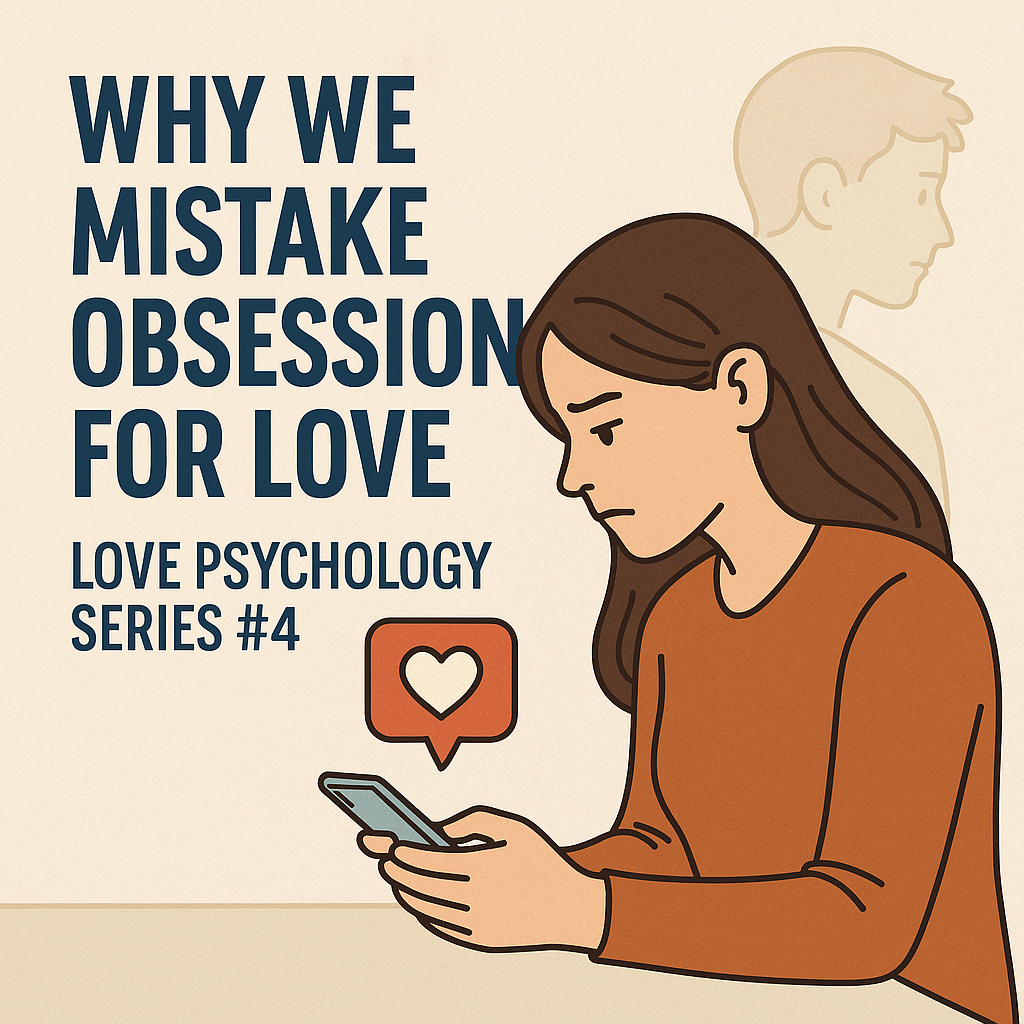Why We Mistake Obsession for Love (Love Psychology Series #4)
Why We Mistake Obsession for Love (Love Psychology Series #4)

You check your phone constantly. You replay every conversation. You feel high when they text back and low when they don't. You say it's love—but what if it's not?
Obsession can feel like love. It's intense, all-consuming, and emotionally charged. But it's not the same as genuine connection. In this post, Dr. Paul Lee explores why we often confuse obsession with love, what psychological patterns drive this mistake, and how to recognize the difference before it consumes us.
1. Obsession Feeds on Uncertainty
Real love brings stability. Obsession thrives on unpredictability. The emotional highs and lows—waiting, wondering, needing—feel like passion, but they’re actually anxiety in disguise.
If someone gives you mixed signals or only shows up when convenient, your nervous system stays on alert. This constant emotional activation becomes addictive. You mistake the adrenaline for affection.
2. Unresolved Wounds Seek Intensity
When love was absent or inconsistent in your early years, your emotional blueprint confuses intensity with intimacy. You don’t chase love—you chase resolution. You’re trying to heal the past by winning over someone who mirrors it.
This isn’t love. It’s a loop. The harder it is, the more you want it—not because it’s right, but because it’s familiar.
3. Your Identity Gets Entangled in the Chase
Obsession becomes personal. It’s no longer about the relationship—it’s about your worth. “If they want me, I’m enough. If they don’t, I’m nothing.” This binary thinking fuels a need to win love instead of receive it.
Genuine love doesn’t make you prove yourself. It doesn’t keep you guessing. It sees you and chooses you without the performance.
4. Fantasy Replaces Reality
In obsessive love, we often fall for an idea—not a person. We ignore red flags, rewrite their flaws, and romanticize every breadcrumb of attention. We're not in love with them. We're in love with who we hope they’ll become.
This fantasy protects us from the pain of reality—but it also prevents real connection. You deserve a relationship that’s real—not one that only lives in your mind.
Conclusion: Real Love Feels Calm, Not Chaotic
Love isn’t supposed to hurt. It’s not supposed to consume your thoughts or rob you of peace. If you’re constantly anxious, waiting, or proving—what you’re feeling may be obsession, not affection.
Real love isn’t loud. It doesn’t chase or test or confuse. It’s quiet, steady, and kind. And it starts when you stop seeking to be chosen—and start choosing yourself.
Written by Dr. Paul Lee
Founder of The Mind Behind Love
📘 Books That Help You Go Deeper
- Obsessed by Allison Britz – A raw exploration of obsessive thoughts and their emotional grip.
- Women Who Love Too Much by Robin Norwood – Explains how obsession is often disguised as love, especially in toxic patterns.
- Breaking the Habit of Being Yourself by Dr. Joe Dispenza – Helps rewire emotional cycles and escape compulsive relationship patterns.